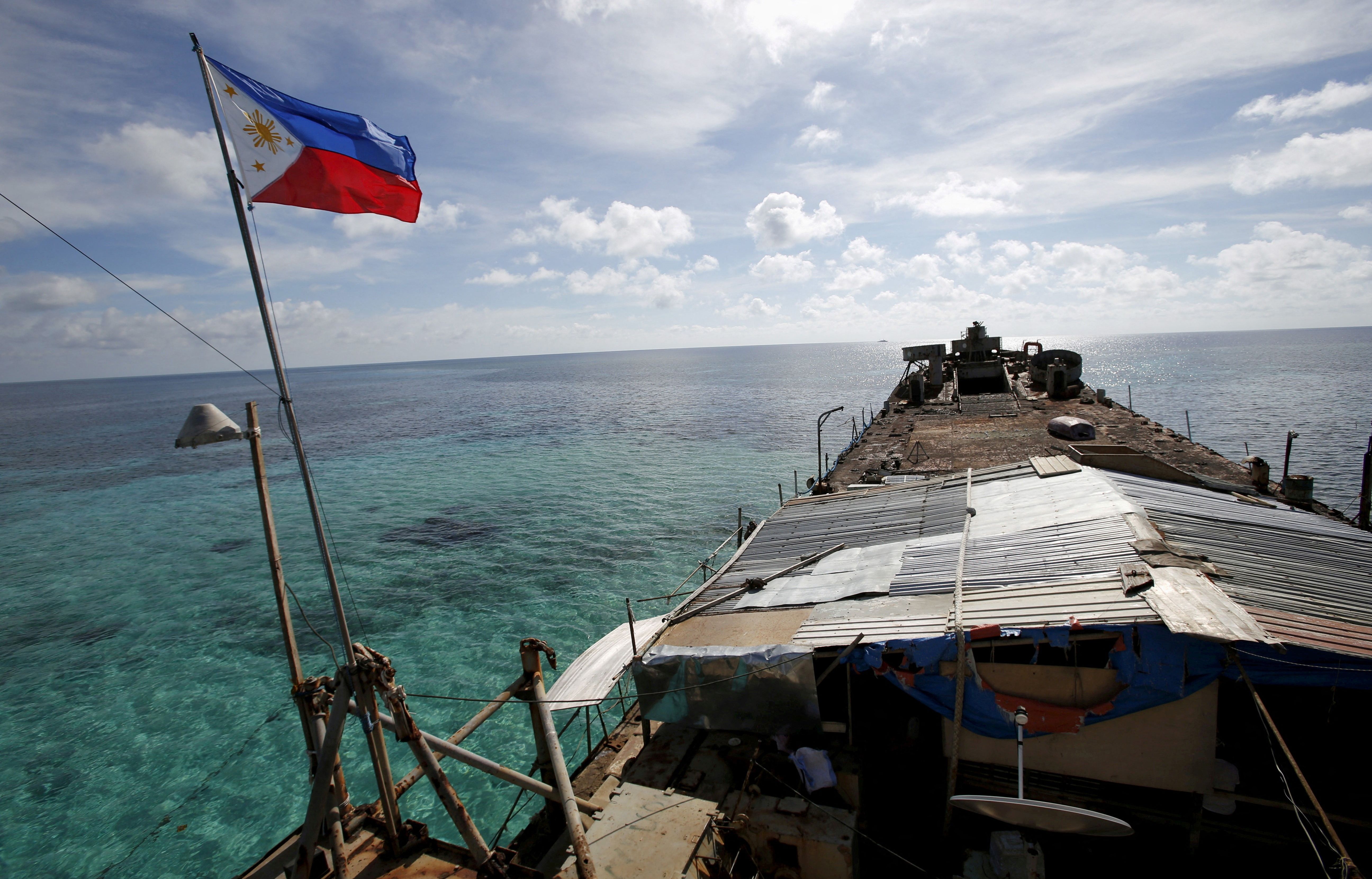U.S. INDOPACOM commander Admiral Samuel Paparo’s comments on U.S. escorts of Philippine vessels on resupply missions being “entirely reasonable” has taken the jostling in the South China Sea up a notch.
Such missions to a Philippine military position on a beached ship on the Second Thomas Shoal, which China also claims, have drawn coercive responses from Beijing. An egregious example was the serious clash on June 17, during which Chinese coast guard personnel brandished weapons and forcibly boarded Philippine craft.
The latest incidents are however expanding to new sites — most prominently Sabina Shoal, located even closer to Philippines’ shoreline than the Second Thomas Shoal. These have involved blocking and multiple cases of ramming.
Provocative as Chinese behavior is, it is questionable if deeper involvement of the U.S. Navy is the answer. Direct insertion of U.S. troops between the sparring parties would up the ante and dare China to confront the U.S. directly. It would transform the current lower-level incidents into potentially a direct clash between two great powers. The risk-to-reward ratio from the standpoint of U.S. vital interests, not to mention regional stability, does not seem to merit such a step, especially when the jostling is over mere specks in the ocean. This is especially true as some of Washington’s policies are themselves contributing to the escalation. Besides, Manila too has demurred on any such escorts (but has indicated that they are not ruled out in the future.)
Admiral Paparo also mentioned the escorts “in the context of consultations,” a reference to Articles III and V of the 1951 U.S.-Philippines Mutual Defense Treaty (MDT), which calls for such consultations and indicates invocation in case of “armed attack” on one of the parties. Manila itself has stated, in comments soon after the June 17 clash, that Chinese provocations do not rise to the level of “armed attack” thus far. President Marcos meanwhile drew a red line for the MDT’s invocation as the death of even a single Filipino during his remarks at this year’s Shangri La Dialogue in Singapore. Fortunately, we are not there yet.
Whichever way one slices the developments in the South China Sea, it is clear they are incrementally heading toward a military crisis. Avoiding such a crisis by finding a de-escalatory ladder should be the first priority of all three states involved.
- US policies pushing China, Philippines to brink of conflict ›
- Dangerous China-Philippine clashes could be expanding ›
- Could a US-China War Begin over the Philippines? ›
















